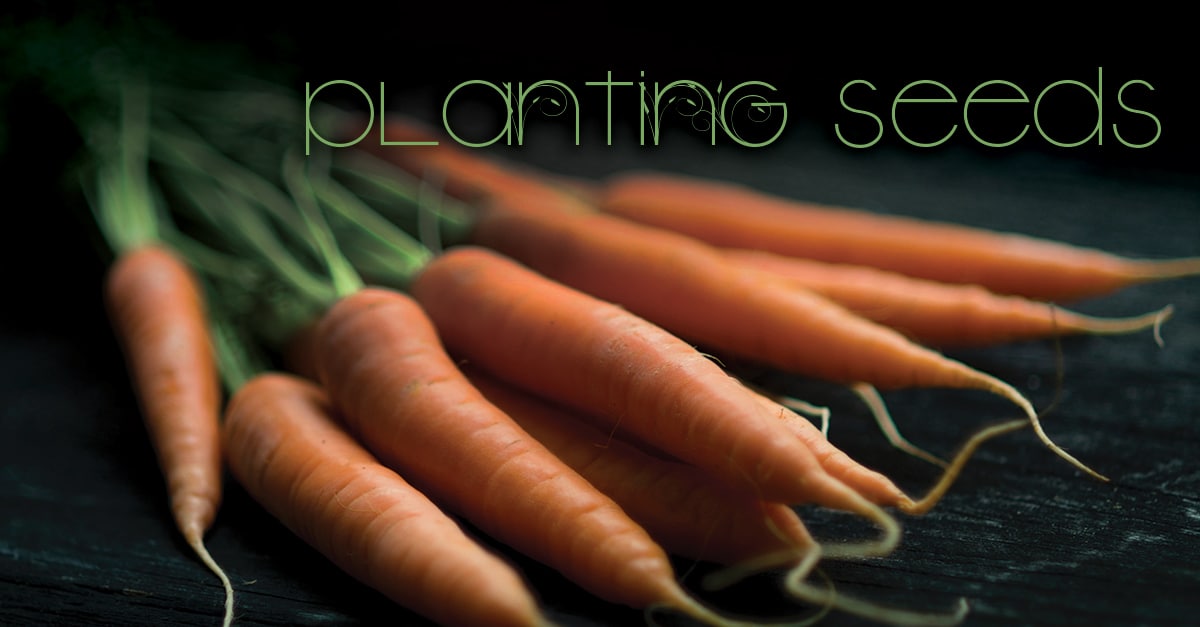Planting Seeds
Siskiyou County Communities Gardening Together…
Gardening can often be challenging, but in Etna, the challenges are of near-Biblical proportions. Gardeners there have to contend with deer, jackrabbits and grasshoppers, not to mention the usual bug pests. But things have been looking up lately with the newly established Etna Community Garden and its seven-foot deer fence. The garden, consisting of 13 raised beds, was established last year by a team of experienced gardeners and sits right next to Etna’s farmers market. Plots at the garden go for $20 a year.
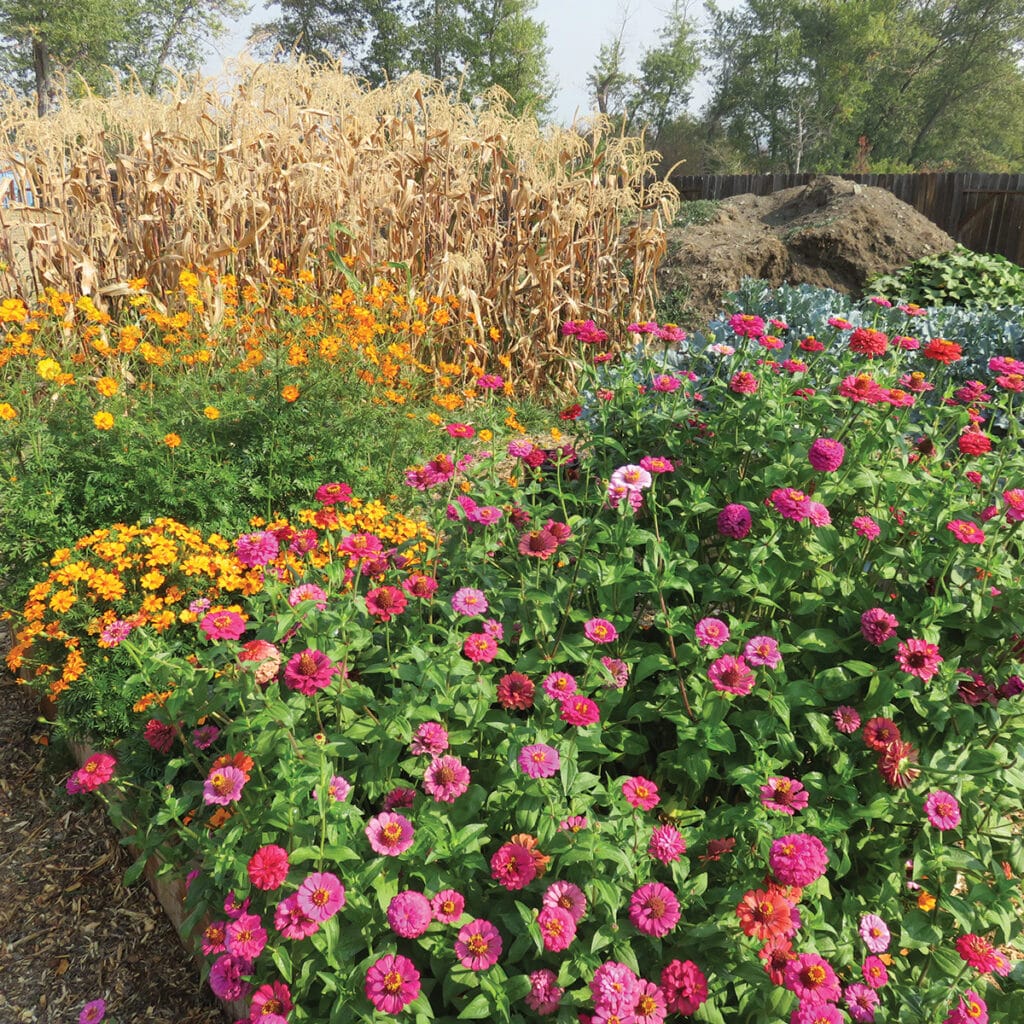
Things got off to a good start this first year. Jay and Terri Thesken, who moved to the Scott Valley from Redding two years ago, took over three beds and raised peppers, tomatoes, carrots, broccoli, squash, corn and flowers, as well as some Jack-Be-Little pumpkins that ended up in a kids’ bowling contest in Fort Jones.
Katherine Chaplin runs a small farm outside Etna and is a master gardener. She was part of the team that started the community garden to “create a community of gardeners.” For her first season, Chaplin planted a “salsa garden” consisting of tomatoes, peppers and tomatillos, and sold the resulting salsa mixture at the neighboring farmers market.
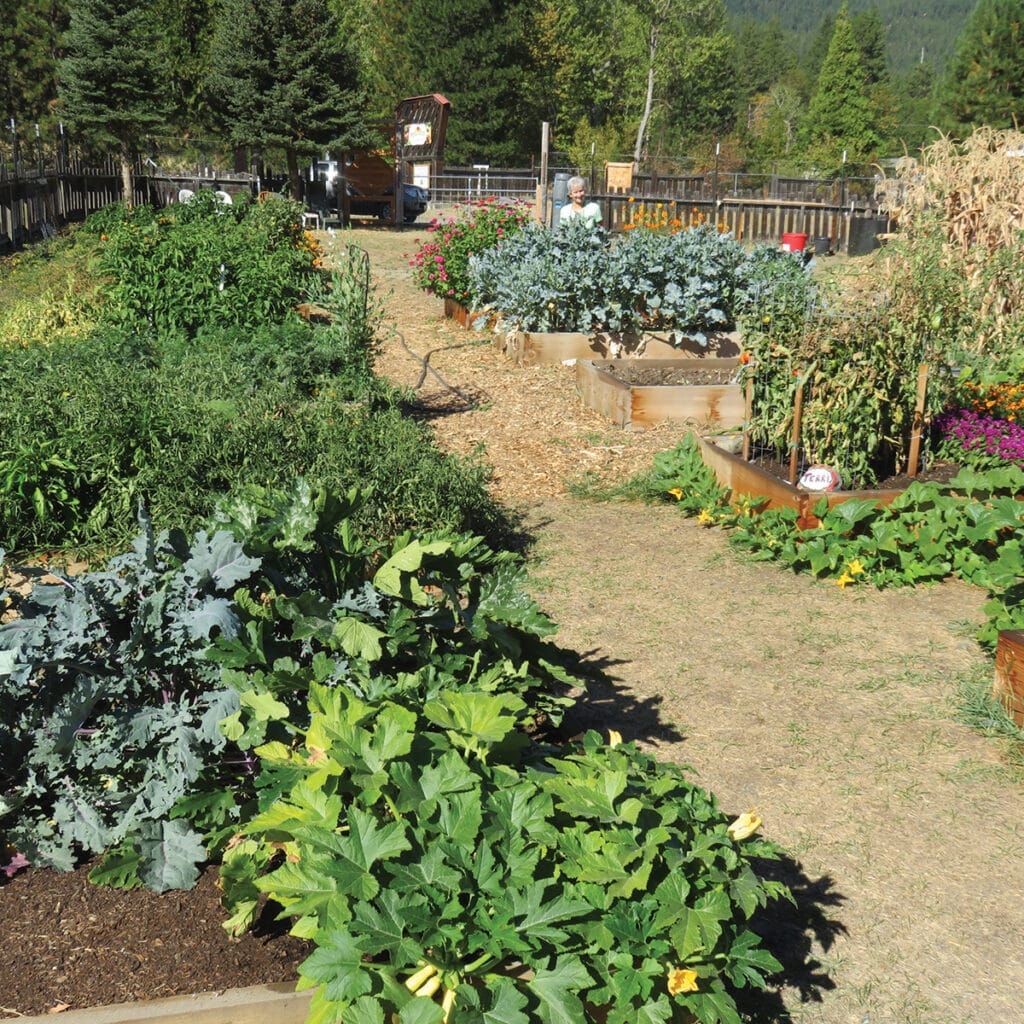
Deborah Meyer, who’s 70, grew a bumper crop of carrots in her plot at the garden. At her age, she’s grateful to get help from other gardeners with the heavy jobs, like hauling bags of fertilizer around. Another benefit of community gardening, she notes, is the sharing of tips and growing techniques.
The garden’s organizers plan to draw in the town’s high school students this coming season with a hands-on learning project on gardening techniques. They’re also hoping more community gardeners will sell their fresh produce at the farmers market next door.
Dunsmuir has a long-established downtown community garden that takes a little different approach from the one in Etna. Like Etna’s, it is primarily a collection of raised beds, but the beds are not divvied out among individual gardeners. With a view to the community’s food needs, especially those of seniors and low-income families, the beds are planted with a view toward providing a wide variety of produce – including greens, green beans, and summer crops like tomatoes and melons. Most of the resulting crop is distributed free to the town’s seniors and families through the food pantry at the Dunsmuir Community Resource Center, the agency that oversees the garden. Quite a bit of the garden’s produce is also sold at the Dunsmuir farmers market.
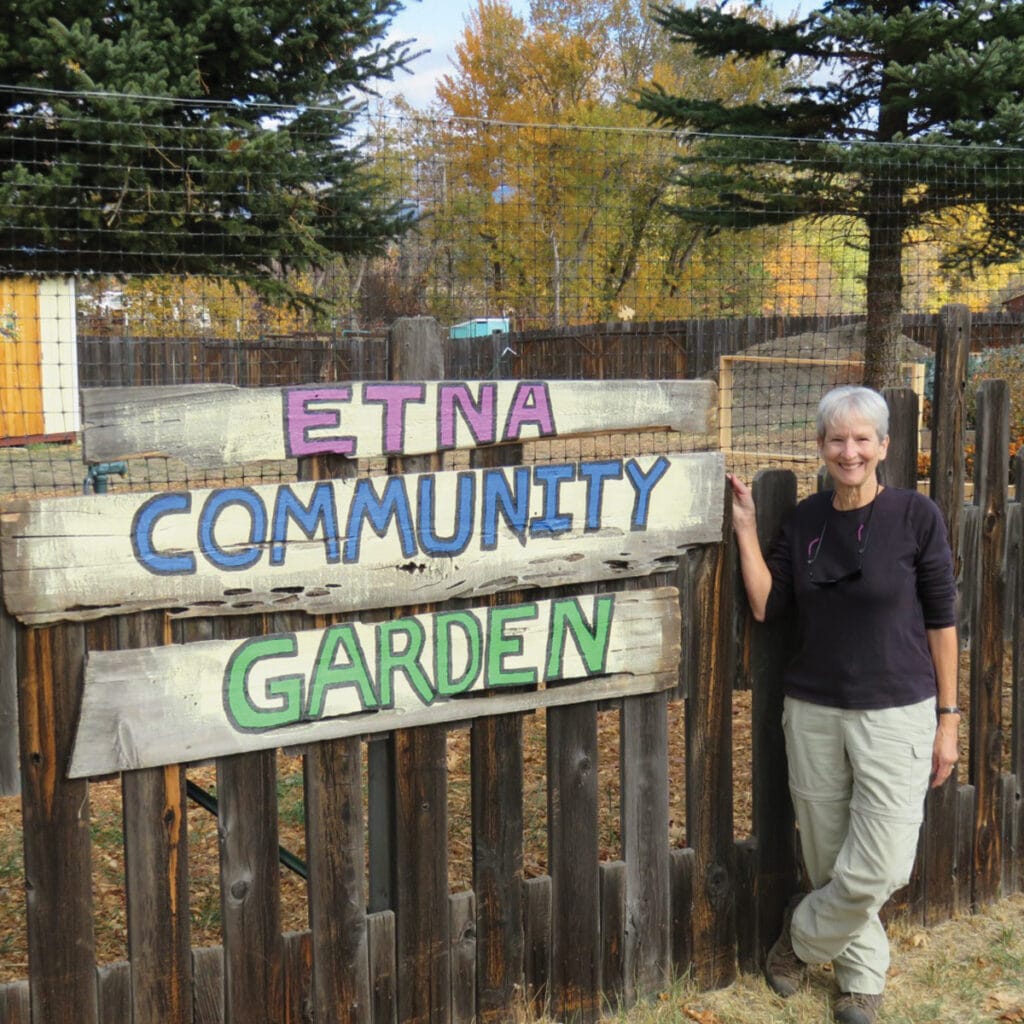
Dunsmuir’s community garden is currently run by a colorful, self-described “Garden Guru,” a big, burly fellow who goes by the name of Two Leaf. Two Leaf is a member of the Cherokee Tribe and an experienced grower, having farmed on seven acres in West Virginia with his five brothers using an old-fashioned horse and plow.
This past year was his first one at the garden. He installed a small herb garden, planted wildflowers and domestic flowers, and has plans this coming season to erect a large teepee at the garden’s center with bean vines growing up its sides. Kids will be able to pick fresh green beans while they’re playing in and around the teepee.
He has to rely on volunteers for one important task: weeding. Two Leaf is legally blind – he has only peripheral vision – so it’s hard for him to see details, to distinguish between weeds and productive plants. Still, he makes no apologies. “I think I do pretty well for a blind Indian,” he says with a smile.
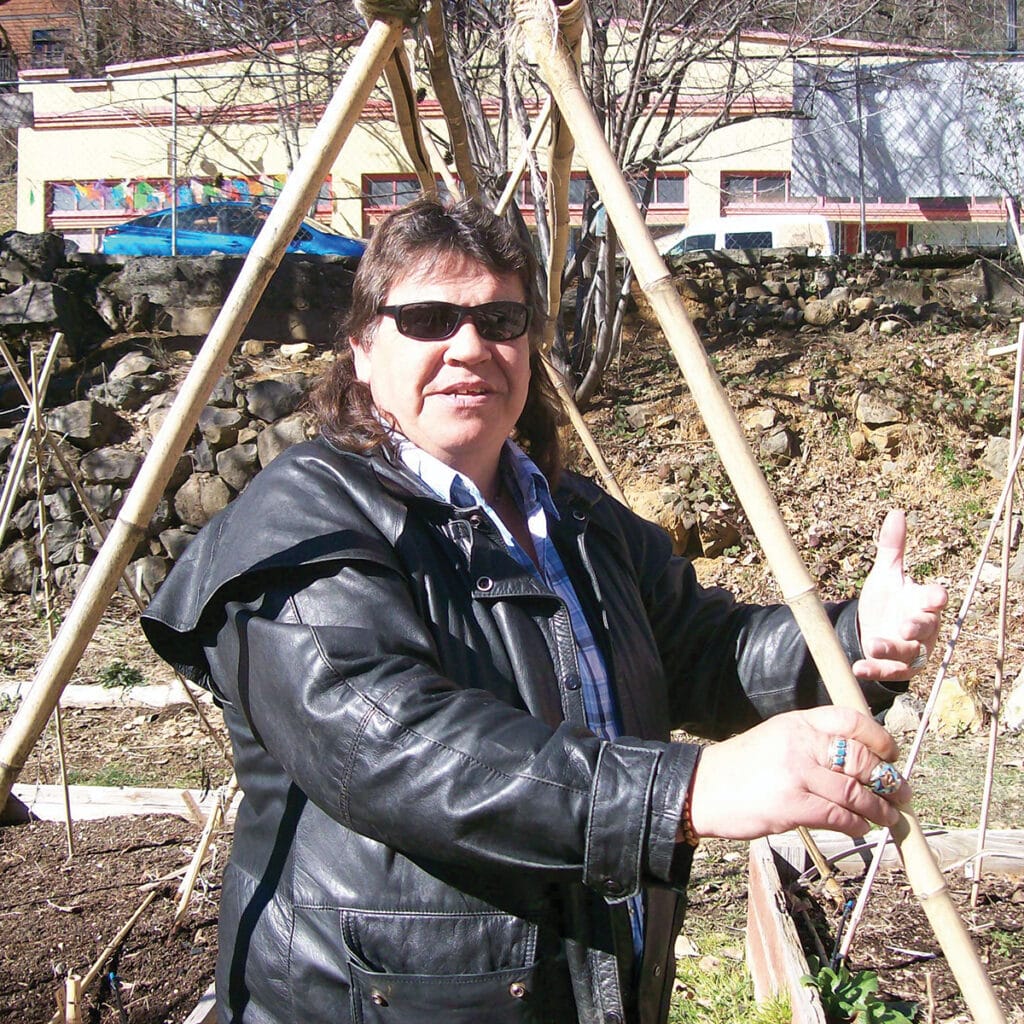
This spring and summer, as schools reopen and pandemic restrictions hopefully loosen up, the Resource Center hopes to revive on-site gardening classes for schoolchildren and cooking and nutritional classes for Dunsmuir families.
Meanwhile, Two Leaf will be chanting his Cherokee prayer songs as he does his daily watering. He considers the garden a sacred place, a “sanctuary” for anyone needing a little peace and quiet. Sometimes, he says, people with “troubled hearts” come by, seeking a little solace, and they find a sympathetic listener in this burly Native American with a soft heart.
“We plant seeds in the ground here, and we also plant seeds in people’s hearts,” he says.

